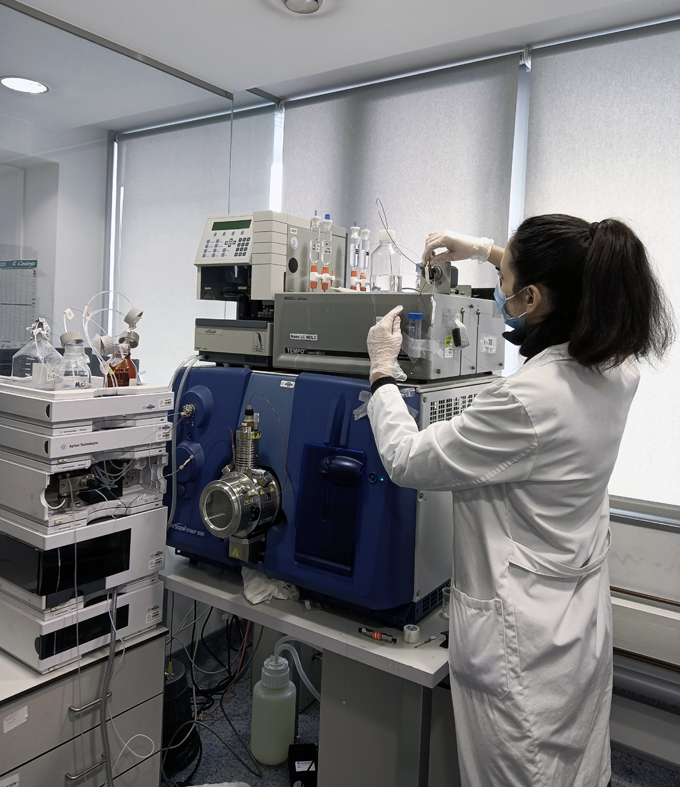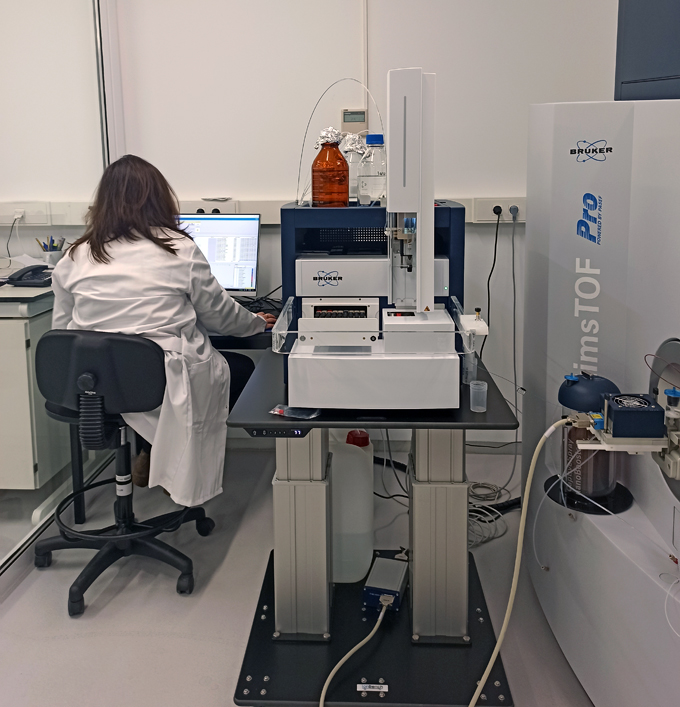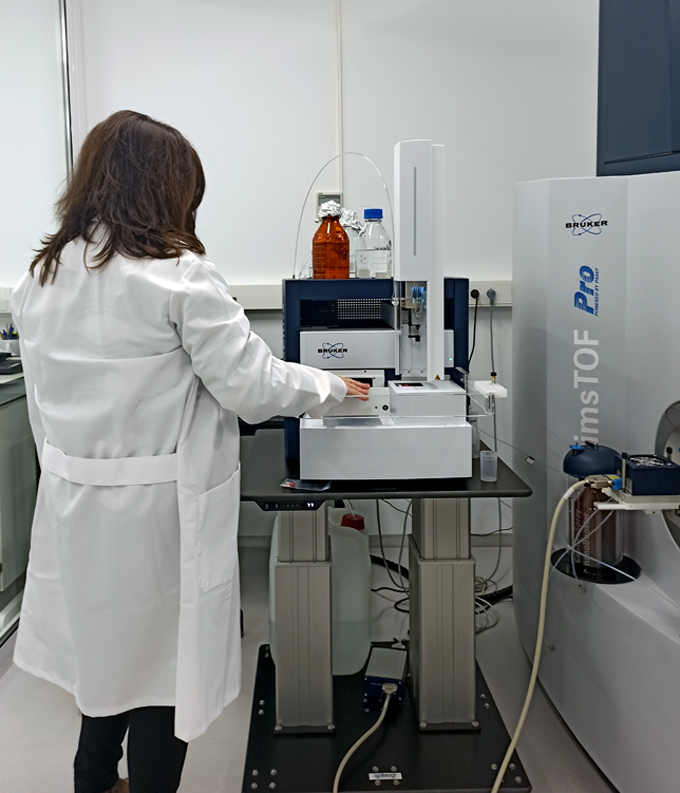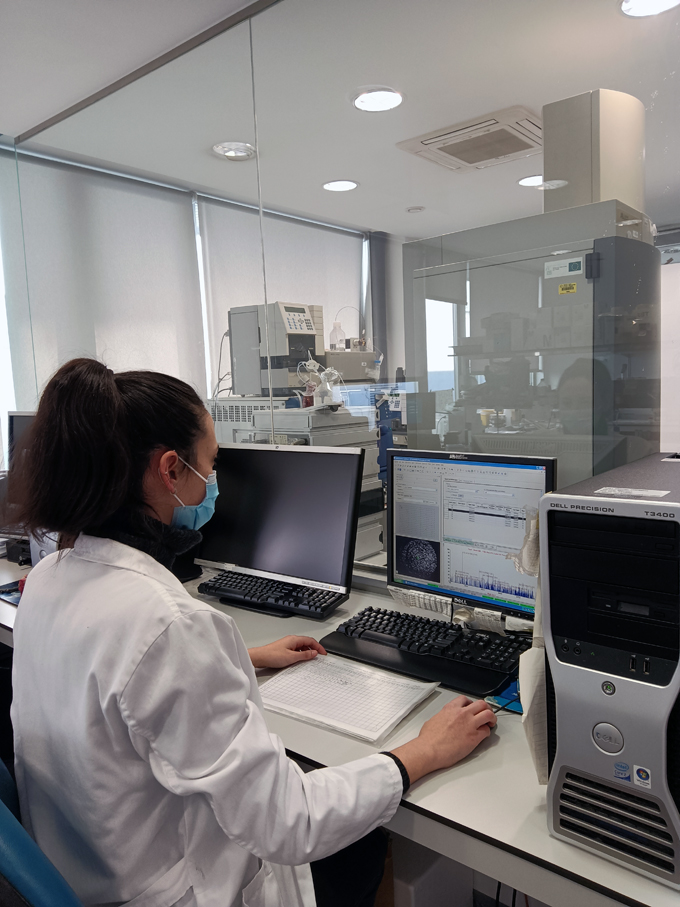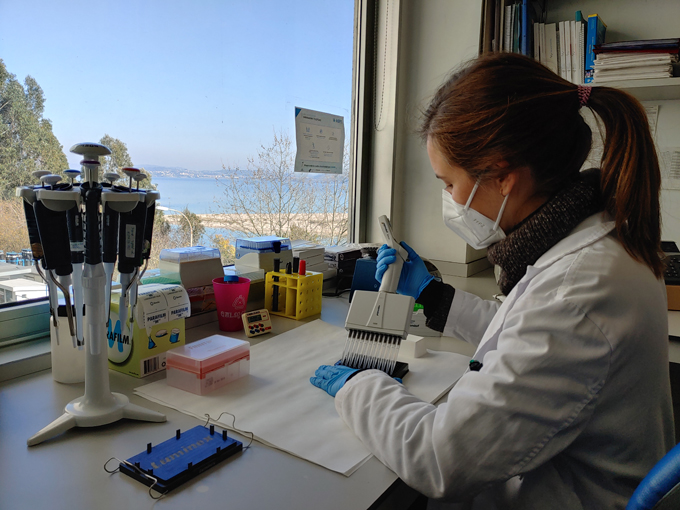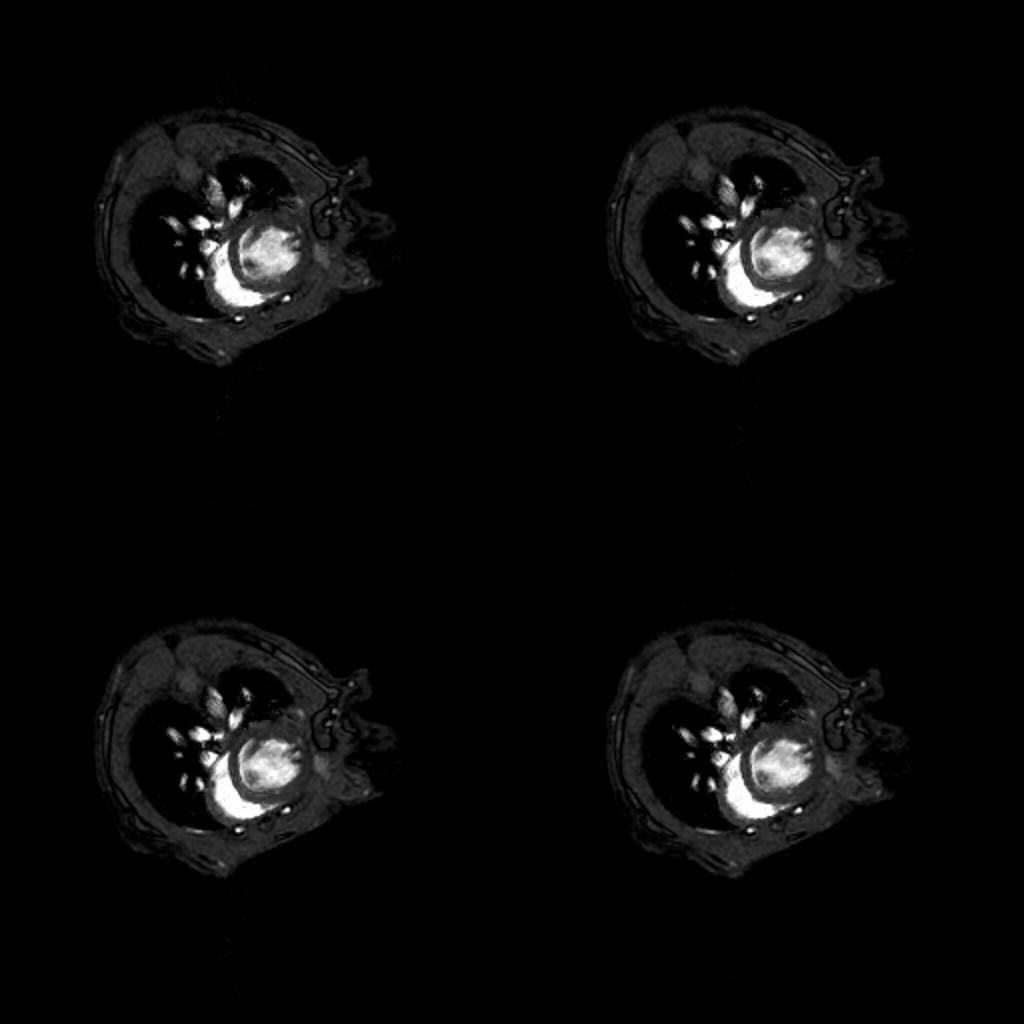U30-S05. Targeted proteomics analysis by MRM or PRM-MS
Targeted proteomics analysis by MRM or PRM-MS
Relative or absolute quantification of individual proteins or protein panels by the analysis of their peptides together with stable isotope labelled (SIL) standards.
Customer benefits
This strategy is employed to verify or validate biological hypotheses with the highest specificity, as it detects the protein sequence and is not dependent on antibodies. The use of isotope labelled standards allows the absolute quantification of the protein/s of interest.
Target customer
Organizations and research groups interested in the analysis and quantification of a protein or panel of proteins with high specificity.
